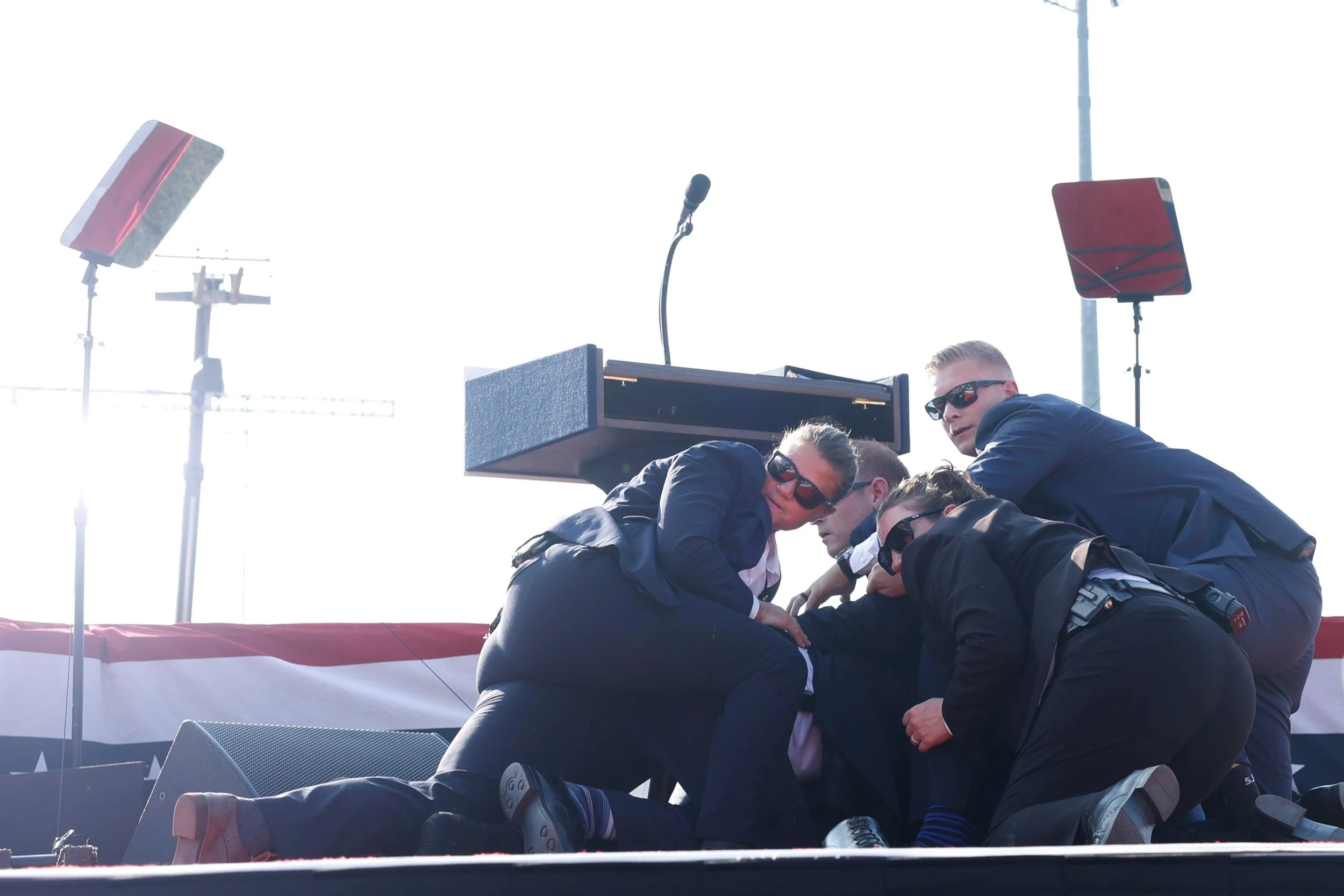People of Peace: A Christian Commitment
America’s political sickness is clear. The symptoms are hard to hide.
Our decorum and civility are ever-devolving. Our leader class is known for trafficking in petty childishness. Our public dialogue is hyperbolized to the point of extremism. Our two leading parties believe the other represents the end of civilization. The result is a circus-like environment that makes you wonder, “Can this even be real?”
But our most shameful and discouraging symptom is public violence. And the apparent assassination attempt on former President Trump a few hours ago is as shameful and discouraging as it gets.
In such an environment, the role of the Christian starts with a commitment to peace.
There are at least three kinds of reasons for this commitment.
PRACTICAL REASONS
Sheer practicality shows that assassinations are a self-defeating strategy.
Assassinations start wars, end presidencies, silence opposition and punish heroes. They create the worst memories for entire generations. They add gasoline to public bonfires.
History has repeatedly proven that eliminating an ideological enemy by force is no solution. It perpetuates a cycle of violence. It is a short-sighted, backfiring, dead-end path. It fails the test of pragmatism.
If political violence is given any place, it will annex for itself a growing place, and therefore must be given no place.
NATIONAL REASONS
In the America I grew up in, the peaceful transfer of power was an international point of pride. It was our “flex” to a chaotic world. It was proof of our democracy’s wisdom.
But to see a former and campaigning President of the United States fired upon at a public rally shows that our “peaceful transfer of power” tradition is badly bending under the weight of our political angst. Our instability is bringing out the worst of the unstable minds among us. And America is all the weaker for it.
In a healthy democracy, the battlefield is the voter’s booth. It doesn’t involve real bullets. So today’s real bullets fired toward Donald Trump are badly damaging toward our public confidence.
Our country was once known for the peaceful transfer of power. It would be nice to be known for it again.
SPIRITUAL REASONS
The Bible is full of commands for Christians to contribute to the world’s peace, not its turmoil. Paul wrote, “I urge that supplications, prayers, intercessions and thanksgivings be made for all people, for kings and all who are in high positions…” (1 Tim 2:1-2).
That means Presidents Biden and Trump should be the recipients of our sincere prayers regardless of our personal political passions. And before them, Presidents Obama, and Bush, and Clinton should have received the same. And after them, President Whoever-Is-Next should, too. And so on.
And what can be more peace-making than praying for someone? As opposed to heckling them, cartooning them, making them an object of hatred? Prayer is a great encourager of peace.
And that’s exactly how the verse ends: “…that we may lead a peaceful and quiet life, godly and dignified in every way” (1 Tim 2:2). So the connection between prayer and peace-making is made explicit.
There are many other verses that show a distinctly Christian commitment to peace. “Blessed are the peacemakers, for they shall be called sons of God” (Matt 5:9). “Let the peace of Christ rule in your hearts” (Col 3:15). “May mercy, peace and love be multiplied to you” (Jude 2). “A harvest of righteousness is sown in peace by those who make peace” (Jas 3:18). “Strive for peace with everyone” (Heb 12:14). There are more.
But the headline is clear: Christians are to be a non-anxious presence, participating in all that brings tranquility and flourishing in the land.
BUT WHAT IF I DON’T LIKE TRUMP?
In short, it doesn’t matter. The biblical commands don’t come with any asterisks about what we like.
I myself am no Donald Trump apologist. I have character concerns. Unfortunately, in the eyes of many evangelical Christians, the more wrong Trump does, the more he can do no wrong. But my concerns continue to be sharp for both the American left and right.
But this makes the case for peace that much stronger: you don’t have to be a Trump apologist to be a peace apologist. And to be a peace apologist is the universal, biblical call for all Christians.
Whether you like Trump or not, if you will live peace, love peace, speak peace, and pray peace in this moment, you will be like Jesus the Prince of Peace. And that will make you distinct in the best way. Especially if you do it side by side with someone who sits in a different place on the political spectrum than you.
A SHORT PRAYER
Lord God, normal human understanding in this hour is going to usher us into panic, fear, bitterness, and ultimately participation in the public’s mass failure to love. That is why we need a peace that goes beyond normal human understanding. And that is exactly the kind of peace you promise.
Secure the health and safety and wellbeing of all our leaders, irrespective of their party affiliation or their personal knowledge of Christ. Let it be safe to stand behind a microphone in our land, as well as in the audience. Please bring healing and peace to the families of all who lost or nearly lost life today. Let reconciliation of all souls happen through Jesus Christ.
And let us, as your people, make you more famous, by the distinct way we conduct ourselves in the upcoming months. America’s boat-rocking need not move us.
In Christ’s Name, the Prince of Peace. Amen.

